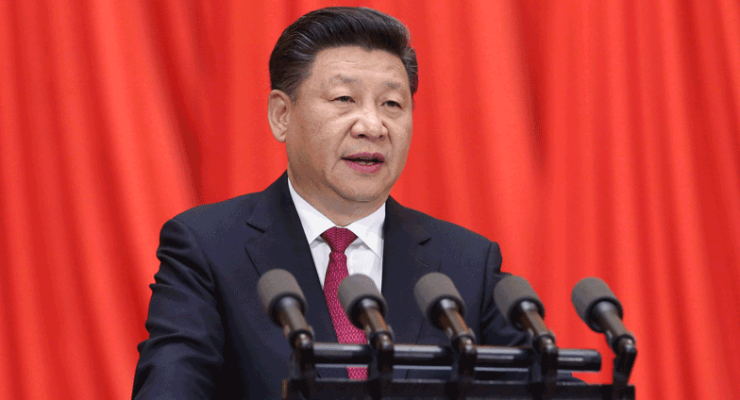
RIVER OF MONEY (OR, LIBERTY BELLE AND THE ABSURDLY EXPENSIVE EXPRESS)
China’s Belt and Road infrastructure mega-project is running into exactly the kinds of problems you’d expect from a politically motivated drive by a command economy: poor project choice, local opposition, and corruption. So what better time than for Victoria’s Andrews government – motivated by who knows what malicious stupidity – to sign up to it without consulting the Commonwealth? Nor are Andrews and Co the only ones in Australia with poor judgement when it comes to China.
A BAD DEBT FOLLOWS YOU
A new book provides a depressing account of the financial crisis and how it failed to kill the conditions that caused it.

A couple of years ago, former UK Labour frontbencher Ed Balls visited Australia and appeared at the National Press Club with Wayne Swan to talk about inequality and the lingering consequences of the crisis. The issue of education and training came up, around the need to ensure low and middle income workers had the skills to secure good jobs with growing wages. But I remember Swan being adamant that improving education alone wouldn’t address inequality – you needed a progressive tax system and a stronger bargaining position for labour. This piece explores that issue further.
Meanwhile, the tech titans of Silicon Valley are offering contrasting approaches to fixing the problem of rampant homelessness in San Francisco, with their usual regard for self interest.
WAS THERE ANYTHING I COULD DO?
One of those stories that will make you feel like there’s no point trying to avoid a surveillance state: wi-fi can track your physical movements. A long read on how paranoia about surveillance is becoming less and less the province of the mentally unwell and more like a form of species unconscious. Also, a major Haaretz investigation into how Israel has become the supplier of choice for the world’s dictatorships – even those aggressively hostile to Israel – for equipment to hunt dissenters.
TWIN LAYERS OF LIGHTNING
What do Australians spend their shopping dollars on? According to ABS data, food accounts around 41% of our spending. In the 1980s, it was lower — around 33%, but rose steadily until the late 2000s when it stopped at around its current level. We also source meals from outside the home far more than we used to — in the 1980s, eating out and takeaways rose to around 12%; from the end of the financial crisis, it rose to 14%. Meanwhile, department stores are in seemingly inexorable decline:

Look more closely at the ABS figures and it’s eating out, not the convenience of takeaways, that has driven the rise in food prepared outside the home. Since the early 80s, our spending on restaurants and cafes has more than doubled to 8.4% of all spending, while takeaways have stayed the same at around 5.8%. Of course, some of us are old enough to remember when even the cheapest department stores had a restaurant or cafeteria upstairs. Maybe they should have kept them.
THE WRONG ROAD
A detailed account of Indigenous political resistance to genocidal policies in Western Australia dismisses the stereotype of passive victimhood: while Bec Shaw writes in praise of pessimism at Kill Your Darlings. And to help with parsing the midterm results from the US — how gender, not sex, dictates voting.
THE DEVIL’S EYE
And by the way, there’s an aural equivalent to these illusions, relating to how we rely on other data to process what we hear. It’s one reason why people claim to hear the voices of the dead on electromagnetic recordings — as explained in the Seriously podcast.
GERMAN FARMHOUSE
Deutsche Welle set out to determine the best German novels translated into English. And have we really killed 60% of animals? Answer: not really, but it’s not much better than that. And Lauren Rosewarne parses ScoMo’s Spotify playlist and navigates the tricky issue of whether It’s Just A Playlist. As she points out, no Go-Betweens! If that doesn’t rule out Scott Morrison from any position of leadership in Australia, I don’t know what does.








Crikey is committed to hosting lively discussions. Help us keep the conversation useful, interesting and welcoming. We aim to publish comments quickly in the interest of promoting robust conversation, but we’re a small team and we deploy filters to protect against legal risk. Occasionally your comment may be held up while we review, but we’re working as fast as we can to keep the conversation rolling.
The Crikey comment section is members-only content. Please subscribe to leave a comment.
The Crikey comment section is members-only content. Please login to leave a comment.